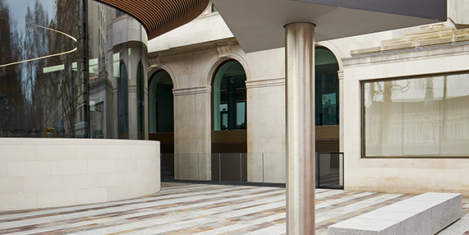April 5, 2017
How to prepare your business for the new Gender Pay Gap regulations 0

From April 2017, employers with over 250 employees will be required to reveal specific information about the difference in net pay and bonuses between male and female employees explain the legal experts from Berg. The Office for National Statistics revealed that, in the financial industry, male managers and directors are earning on average 32.4% more than women in the same role. Whilst the statistic will vary from industry to industry, it’s important to highlight the divide and work together to accomplish equality in the workplace. The Equality Act 2010 (Gender Pay Gap Information) Regulations 2017 comes into force on 6th April 2017, and will require businesses to be transparent about the gender equality in their workplaces. It is hoped that this important move will encourage any business with less than positive statistics to make the move towards creating an equal workplace. For businesses that will need to report on their net pay, it’s a big task that needs to be executed properly. In fact, a survey by NGA Human Resources found that 20% of respondents won’t be ready to disclose the information by the deadline. With that in mind, here’s a look into what the regulations require you to do, and how these changes could impact your business.













 UK employers are unprepared for gender pay gap reporting legislation, with more than a third (32 percent) failing to review salaries across genders to safeguard against pay discrimination. This is despite the fact that the Equality Act 2010 (Gender Pay Gap Information) Regulations 2017 come into force later this week (6th April) which will require UK companies with more than 250 staff to keep records of gender pay and bonuses. Totaljobs’ survey of 4,700 employees and 145 employers found that 82 percent of companies are not reviewing their gender equality/equal pay policy and 58 percent don’t have salary information available across roles and genders. Little more than half (53.1 percent) of employers feel “very confident” that salaries are equal across the genders. While employers will be required to keep salary records, the research showed men are currently more likely to receive a bonus than women and typically receive more. In the past year, 43 percent of men received a bonus of £2,059, on average, versus 38 percent of women, who, on average, received £1,128.
UK employers are unprepared for gender pay gap reporting legislation, with more than a third (32 percent) failing to review salaries across genders to safeguard against pay discrimination. This is despite the fact that the Equality Act 2010 (Gender Pay Gap Information) Regulations 2017 come into force later this week (6th April) which will require UK companies with more than 250 staff to keep records of gender pay and bonuses. Totaljobs’ survey of 4,700 employees and 145 employers found that 82 percent of companies are not reviewing their gender equality/equal pay policy and 58 percent don’t have salary information available across roles and genders. Little more than half (53.1 percent) of employers feel “very confident” that salaries are equal across the genders. While employers will be required to keep salary records, the research showed men are currently more likely to receive a bonus than women and typically receive more. In the past year, 43 percent of men received a bonus of £2,059, on average, versus 38 percent of women, who, on average, received £1,128.



















April 3, 2017
Brexit should be a chance for the UK to enshrine employment rights 0
by Chris Rowley • Comment, Legal news, Workplace
(more…)